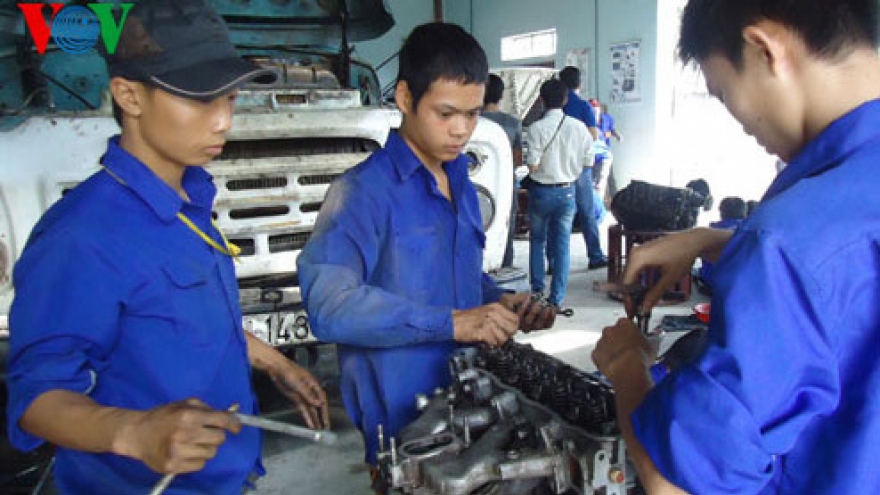Soft skills vital to Vietnam’s success in the AEC
VOV.VN - Soft skills have far-reaching implications for the success of Vietnam’s workforces in the rapidly changing business environment brought about by the advent of the ASEAN Economic Community (AEC), say experts.
What Are Soft Skills?
Soft skills are those needed to deal with people and problems such as language, interpersonal, problem-solving, leadership and creative thinking skills, according to Phan Chinh Thuc.
The Former Head of the General Department of Vocational Training said they are the complement to technical and job-specific hard skills taught in colleges and universities throughout the country.
But unlike hard skills, Thuc said, soft skills cannot, for the most part, be taught in a classroom setting but must be learned from first-hand social interactions and real-life experiences.
Shortage of soft skills
Published studies show businesses with staff and employees who possess well-developed soft skills have a 75% better chance of achieving a leadership role in their industry or profession, said Thuc.
A few steps employers can take to guarantee they are hiring the right college graduates involve looking at and assessing a job applicant’s past experiences for indictors that would increase their soft skills.
 |
Other experts say Vietnamese workers’ soft skills are noticeably weaker than other regional countries like the Philippines, Thailand, Malaysia and Singapore and drastic measures must be undertaken to improve them.
They cite an International Labour Organization (ILO) forecast indicating the number of jobs in Vietnam may increase by 14.5% as a result of the AEC, but point out these jobs may go to workers from other countries due to lack of Vietnamese candidates possessing competent soft skills.
Investing in soft skills is vital for the competitiveness of the Vietnam economy they say, adding the country needs to produce a workforce that is adaptable, can problem-solve individually and in teams, and can communicate and sell their ideas.
Vietnam local businesses are now operating in an increasingly competitive regional economy they say, and if the nation is going to succeed in this environment, reprioritising Vietnam’s approach to lifelong education and skills development is of paramount importance.
Meanwhile a survey by the online recruitment company, VietnamWorks, of 2,500 Vietnamese workers, showed 84% of them lack confidence in their ability to communicate in a foreign language.
They felt that this factor alone, negatively affected their ability to negotiate a higher wage comparable to those with better language skills and a full 67% of them don’t believe they have the necessary soft skills to compete with foreign workforces in the AEC.
For his part, Director Pham Duc Vinh of the Hanoi Industrial College, said graduating students are finding it extremely difficult to integrate in the new AEC labour environment, principally because of their weak skills, particularly in English competency.




